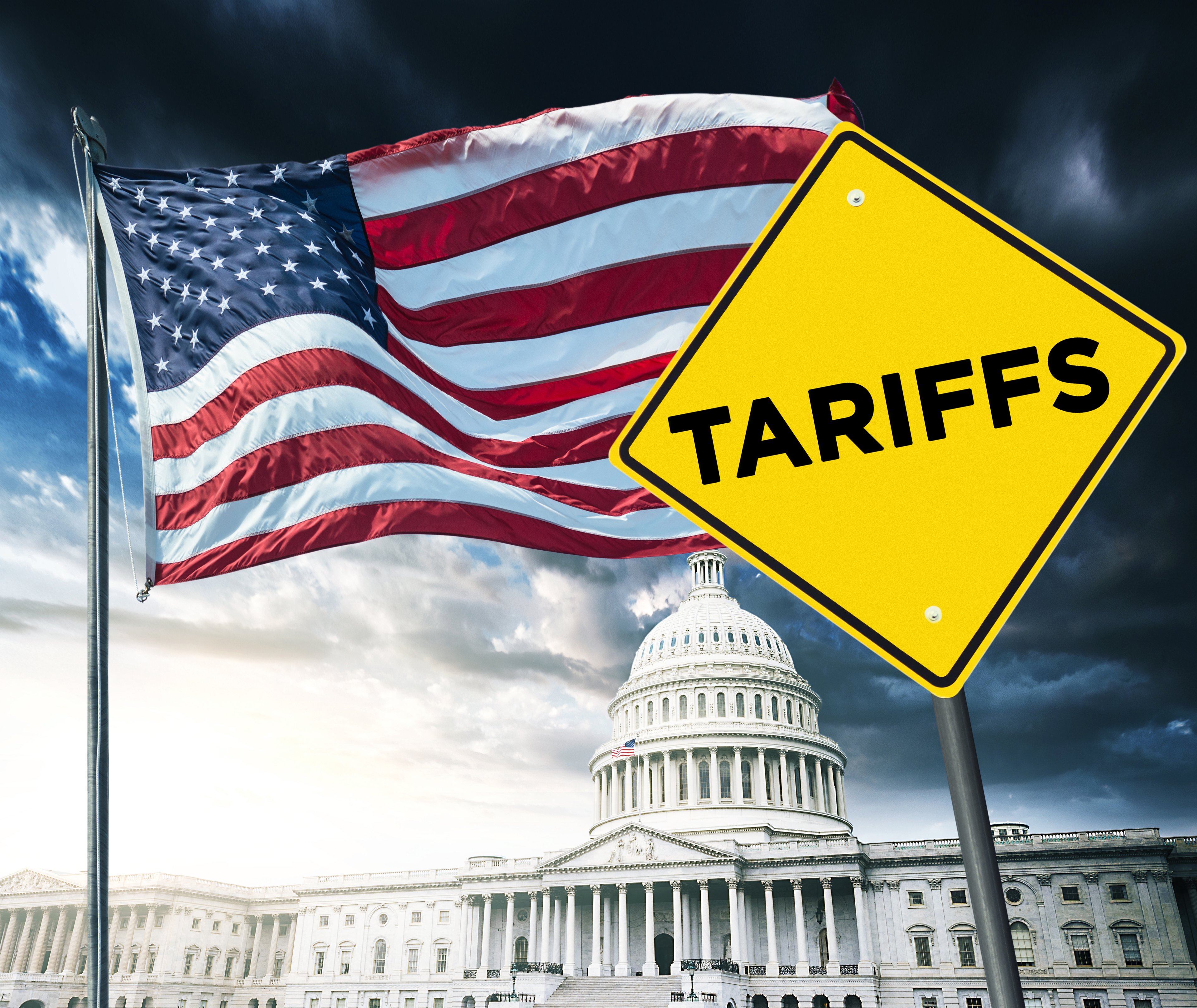Tariffs are a surcharge placed on physical goods imported into the United States. President Donald Trump uses them to encourage companies to manufacture their products domestically rather than overseas. While this is great in theory, tariffs significantly increase prices for consumers, which can hurt economic growth, and they can also lead to a highly damaging global trade war.
That's why the S&P 500 was down by as much as 19% after Trump announced his initial round of tariffs in April. He has since walked back the most aggressive levies, but earlier this month, the market sold off again when the president threatened to place a surcharge of 100% on all imports from China starting from Nov. 1. Then, on Oct. 25 he announced a new 10% tariff on Canadian imports.
It's safe to say trade tensions aren't going away any time soon, so investors might want to buy some protection. BlackRock's iShares U.S. Tech Independence Focused ETF (IETC +0.33%) is an exchange-traded fund (ETF) that invests in American technology companies that produce a growing amount of their products or intellectual property domestically. Here's why it could be an excellent addition to a diversified portfolio.

Image source: Getty Images.
A portfolio of tariff-resistant stocks
This iShares ETF targets companies that are helping the U.S. achieve its goal of tech independence. These companies are opting to produce more of their goods and services using resilient value chains over time, so they are less exposed to potentially damaging trade policies.
The software and services sector has a weighting of 40.6% in the iShares ETF as I write this, which isn't a surprise because tariffs typically don't apply to digital products. The semiconductor sector has the second-highest weighting at 25.7%, which might seem counterintuitive because most advanced chips are produced in foreign countries like Taiwan, but Trump excluded this critical computing hardware from the tariffs he has imposed so far.
Not to mention that fabricators like Taiwan Semiconductor Manufacturing and Intel are working hard to build manufacturing facilities right here in the U.S., which will de-risk the semiconductor supply chain.
Here are the top 10 holdings in the iShares ETF, which account for 61.6% of the value of its entire portfolio. They reflect the fund's heavy focus on software and chips.
|
Stock |
iShares ETF Portfolio Weighting |
|---|---|
|
1. Broadcom |
13.03% |
|
2. Palantir Technologies |
11.34% |
|
3. Nvidia |
8.89% |
|
4. Amazon |
6.77% |
|
5. Microsoft |
6.26% |
|
6. Oracle |
4.09% |
|
7. Salesforce |
3.82% |
|
8. Apple |
2.92% |
|
9. Meta Platforms |
2.49% |
|
10. International Business Machines |
2.46% |
Data source: iShares. Portfolio weightings are accurate as of Oct. 28, 2025, and are subject to change.
Broadcom and Nvidia are two of the world's largest suppliers of chips and components for data centers, particularly those used in artificial intelligence (AI) development. Palantir, Microsoft, Oracle, and Salesforce, on the other hand, sell various types of software.
Microsoft and Oracle are also two of the biggest buyers of AI data center chips, and they rent the computing capacity to businesses through their respective cloud platforms. This business practice has also escaped tariffs so far because it involves selling digital services. Plus, given the pace with which AI is improving, political uncertainty probably won't stop most businesses from investing in the technology so they don't get left behind, which will bolster demand for cloud services.
Meta Platforms is the world's biggest social media company, and it generates most of its revenue by selling digital advertising slots on Facebook and Instagram. These sales typically aren't subjected to tariffs, but many of the businesses that advertise on Meta's social networks could trim their marketing spend if tariffs affect demand for their products overall. As a result, Meta could suffer indirect consequences of President Trump's trade policies.
Outside its top 10 holdings, the iShares ETF holds a number of other tariff-resistant stocks like Google parent Alphabet, ride-hailing giant Uber Technologies, and cybersecurity software powerhouses Palo Alto Networks and CrowdStrike.

NYSEMKT: IETC
Key Data Points
The iShares ETF has a great track record of performance
The iShares U.S. Tech Independence Focused ETF was established in 2018, during Trump's first term in office. It has since delivered a compound annual return of 21.5%, obliterating the S&P 500, which has gained 13.4% per year over the same period.
Since trade policy is always so fluid -- especially under the current administration -- investors shouldn't put all of their eggs in one basket. However, this iShares ETF could be a great addition to any diversified portfolio because, in theory, it should continue to do well if other areas of the stock market struggle under the weight of tariffs.

